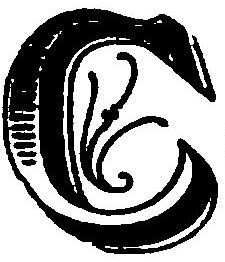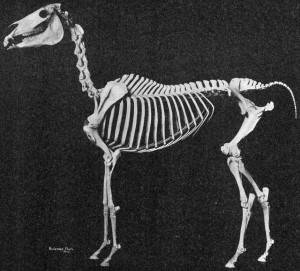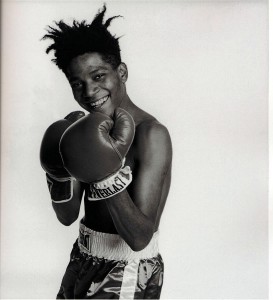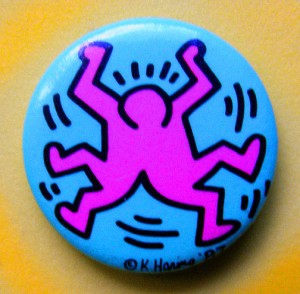1972 footage of Elvis, already pretty much ruined, five years before dying.
______________________________
“He was all alone…in a long decline…thinking how lucky John Henry was that he fell down dyin’.”
Ideas and technology and politics and journalism and history and humor and some other stuff.
You are currently browsing the yearly archive for 2011.
1972 footage of Elvis, already pretty much ruined, five years before dying.
______________________________
“He was all alone…in a long decline…thinking how lucky John Henry was that he fell down dyin’.”
Tags: Elvis Presley, Gillian Welch, John Henry
this listing is for a very unique fox squirrel taxidermy mount. she was found as ROADKILL so she was not killed for fur, and instead of letting her go to waste someone preserved her beauty. she is in mint condition.
unlike gray squirrels, this is a fox squirrel and she is HUGE. almost the size of a cat!
Time is on your side, puppy. (Thanks Reddit.)
 Capital Punishment: The legal infliction of death for crime. In early ages, for want of public organization, it was conducted as a bloodfeud by the family wronged, and could be compounded, under the Saxons, by regulated payments. In later Europe, with organized states, but with lack of prisons and police and dread of violence, it was very common, being the penalty for petty thefts. It is now practically inflicted only for murder, and the sentimentality of American juries with an exaggerated exactness in rules of evidence, has made it much rarer than in England. There is a tendency in Southern Europe to change all capital punishment into life imprisonment, but much stricter and more hopeless than in the United States. Death is inflicted by hanging, electrocution, the guillotine or garrote, and no longer in public.
Capital Punishment: The legal infliction of death for crime. In early ages, for want of public organization, it was conducted as a bloodfeud by the family wronged, and could be compounded, under the Saxons, by regulated payments. In later Europe, with organized states, but with lack of prisons and police and dread of violence, it was very common, being the penalty for petty thefts. It is now practically inflicted only for murder, and the sentimentality of American juries with an exaggerated exactness in rules of evidence, has made it much rarer than in England. There is a tendency in Southern Europe to change all capital punishment into life imprisonment, but much stricter and more hopeless than in the United States. Death is inflicted by hanging, electrocution, the guillotine or garrote, and no longer in public.
Chewing gum: A tough flavored gum, used for taste and nervous relief in the United States.
Child Sanitation: The larger cities of the United States are now following the German system of regular free medical and dental inspection and treatment of school children, followed, where necessary, by visits at home. Careful attention to imperfect eyes, prescription of glasses, and removal of adenoids, have great influence in the development of future citizens. Free parks and playgrounds are introduced wherever possible; the school and school-grounds employed out of hours and in vacation time, for voluntary classes; amusements and calisthenics, singing, dancing, and games are taught, and a system of school teams and friendly competition fostered. Roof-gardens, amusement piers, free-baths, and excursions are beneficial in crowded neighborhoods.
Clitoris: A small muscular organ, the most sensitive part of the genitals of the female mammal, very much subject to a diseased condition caused by malpractices.
Colic: A spasmodic and painful affection of the bowels, more especially of the colon, known to exist in several forms–the nervous, hysteric, bilious, hepatic, etc. A considerable accumulation of wind, neglected constipation and also the contrary, the action of powerful purgatives, also exposure to cold, are some of the causes of colic. The paroxysmal pain is often relieved by pressure or massage over the pained part, usually in the region of the navel. When flatulence is accountable for colic, it is often relieved by warm water injections. Narcotics and anodynes should never be used without the order of a physician as they often do more harm than good.
•Taken from the 1912 Standard Illustrated Book of Facts.
See also:
Inexplicable Republican boy wonder Chris Christie is far from the first politician to lie freely, but his Giuliani-like arrogance is fairly stunning. The governor gets a richly deserved, detailed takedown in “Christie’s Talk Is Blunt, But Not Alwats Straight,” Richard Perez-Pena’s piece in the New York Times. The article’s opening:
“New Jersey’s public-sector unions routinely pressure the State Legislature to give them what they fail to win in contract talks. Most government workers pay nothing for health insurance. Concessions by school employees would have prevented any cuts in school programs last year.
Statements like those are at the core of Gov. Chris Christie’s campaign to cut state spending by getting tougher on unions. They are not, however, accurate.
In fact, on the occasions when the Legislature granted the unions new benefits, it was for pensions, which were not subject to collective bargaining — and it has not happened in eight years. In reality, state employees have paid 1.5 percent of their salaries toward health insurance since 2007, in addition to co-payments and deductibles, and since last spring, many local government workers, including teachers, do as well. The few dozen school districts where employees agreed to concessions last year still saw layoffs and cuts in academic programs.”
Tags: Chris Christie
If.
Tags: Stephen Hawking

"He sold trash bags door to door at age 12, and later earned $25 an hour teaching disco moves at a sorority house." (Image by James Duncan Davidson/O'Reilly Media, Inc.)
From “Dan Rather: Inside Mark Cuban’s Gilded Cage,” Jim Rendon’s excellent new Mother Jones article:
“He grew up in a middle-class Pittsburgh suburb, where he sold trash bags door to door at age 12, and later earned $25 an hour teaching disco moves at a sorority house. During college at Indiana University, he opened a bar, and upon graduating he followed his school buddies in pursuit of ‘fun, sun, money, and women’ to Dallas, where he taught himself to write code. In 1990, Cuban sold his first real business play, a computer consulting firm, for $6 million. He also launched and sold a hedge fund and relocated to Los Angeles, where, with less success, he tried his hand at acting. (Some recent cameos on HBO’s Entourage compelled the Wall Street Journal to jeer that Mark Cuban wasn’t even believable as Mark Cuban.)
In 1995, Cuban and his friend Todd Wagner launched Broadcast.com, which put audio and video of sports online. Four years later, at the height of dot-com mania, they sold it to Yahoo for $5.7 billion in stock—Cuban pocketed more than $1 billion. ‘I am the luckiest motherfucker in the world,’ he says. ‘It’s like I tell people, ‘When I die, I want to come back as me.'”
••••••••••
Tags: Dan Rather, Jim Rendon, Mark Cuban, Todd Wagner
From Singularity Hub: “One of the most important concerns in integrating robots into human environments is keeping people safe. Yun demonstrates (towards the end of the clip) that Mahru has great compliance control. You can shake its hand, or push on its body, and the robot will give way. This keeps the robot from hurting you even if the guy operating Mahru turns out to be a psychopath.”
You apparently couldn’t walk down the street back in the day without finding a human skeleton. Reports of a few such occasions from the Brooklyn Daily Eagle follow.
••••••••••
“Unearthed a Skeleton” (January 16, 1897): “A skeleton was unearthed by John Fentuny at Bowery Bay beach late yesterday afternoon. Fentuny was at work in a bank near the mill pond when his pick struck a hard substance. He thought it was stone and kept at work until the different parts of what proved to be a skeleton were revealed. The pick scattered the bones, but the head remained intact. Thomas Blackwell who lives on the beach gathered the bones into a box and brought them to the station house. Coroner Haslam had the skeleton transferred to the Newtown morgue and he says that the body must have been in the ground for many years. There was no evidence of any coffin. An old resident says that a farmhand who had the reputation of being a miser mysteriously disappeared from the neighborhood twenty years ago, and he thinks the skeleton might possibly be that of the miser.”
••••••••••
“Boys Find a Man’s Skeleton” (November 29, 1896): “The skeleton of a man was found yesterday by Jersey City police on the meadows west of Hackensack river, and north of the Newark branch of the Erie railroad, near Snake Hill. It is supposed that the man had been murdered. The skull lay about five feet from the body.
Three boys who were hunting on the meadows discovered the skeleton on Friday afternoon. They said afterward that they were frightened and did not examine it closely at the time. They continued their hunting expedition and made no report until they returned to Jersey City.”
••••••••••

"Following the rope was a perfect skeleton of a horse found, the noose of the rope still encircling the neck bones."
“Died of Thirst in the Desert” (May 1, 1890): “San Diego, Cal.–George Millard, arrived at Campo from Indian Wells and reports finding three skeletons on the desert. In one place he saw skeletons of two men lying a few yards apart. They evidently had been companions. Lying on the sand nearby was a third skeleton, betraying in its unnatural position terrible agony of death from heat and thirst. A few steps away was a picket pin driven into the ground with a lariat attached to it. Following the rope was a perfect skeleton of a horse found, the noose of the rope still encircling the neck bones.”
••••••••••
“Skeleton of Child Found in Tenement Wood Shed” (August 13, 1900): “The discovery of a skeleton in the wood shed of the cellar of the tenement house at 333 Furman street, on Saturday evening at 6:30 o’clock, by three boys caused a report in that section that a baby farm had been unearthed. The neighbors shook their heads over the uncanny find and stories began to circulate freely to the effect that the skeleton might be only one of a number of similar cases.”
••••••••••
“Newbury’s Ghastly Find” (November 24, 1902): “Rockaway Park, L.I.–Louis Newbury, an attaché of St. Malachi’s Home, while passing through a clump of woods near Eighteenth street, yesterday afternoon found the skeleton of a man. The bones were those of a man judged to have been 5 feet 10 inches tall. A fedora hat, a gold watch, a revolver and 25 cent piece were found near the bones, but there was nothing else by which indentification can be established. The revovler was fully loaded with the exception of one empty chamber and a smooth hole in the skull indicated that the mising bullet had been used to end the life of the stranger.”
Tags: Coroner Haslam, George Millard, John Fentuny, Thomas Blackwell

"I'm always amazed at how people come up with things. Like Jean-Michel." (Image by Michael Halsband.)
From Rene Ricard’s 1981 Artforum article, “The Radiant Child,” which was the first major piece to look at the work of emerging NYC artists Jean-Michel Basquiat and Keith Haring:
“Graffiti refutes the idea of anonymous art where we know everything about a work except who made it: who made it is the whole Tag. Blade, Lady Pink, Pray, Sex, Taki, Cliff 159, Futura 2000, Dondi, Zephyr, Izzy, Haze, Daze, Fred, Kool, Stan 153, SAMO, Crash. (Crash is still bombing.) But trains get buffed (the damnatio memoriae of the Transit Authority), and with the need for identity comes the artist’s need for identification with the work, and to support oneself by the work is the absolute distinction between the amateur and the pro. Therefore, the obvious was to raise oneself by the supreme effort of will from the block, from the subway, to the Mudd, to the relative safety and hygiene of the gallery. Because an artist is somebody. Say what you will about group shows and collaborative enterprise: Das Kapital was written by one man. This is no graffito, this is no train, this is a Jean-Michel Basquiat. This is a Keith Haring.
 Both these artists are a success in the street where the most critical evaluation of a graffito takes place. Jean-Michel is proud of his large SAMO Tag in a schoolyard, surrounded by other Tags on top of Tags, yet not marked over. This demonstrates respect for the artist as not just a graffitist but as an individual, the worth of whose Tag is recognized. There’s prestige in not being bombed over. There are also fake SAMOS and Harings as well as a counter-Haring graffitist who goes around erasing him. The ubiquity of Jean-Michel’s SAMO and Haring’s baby Tags has the same effect as advertising; so famous now is that baby button that Haring was mugged by four 13-year-olds for the buttons he was carrying (as well as for his Sony Walkman.) The Radiant Child on the button is Haring’s Tag. It is a slick Madison Avenue colophon. It looks as if it’s always been there. The greatest thing is to come up with something so good it seems as if it’s always been there, like a proverb. Opposite the factory-fresh Keith Haring is Jean-Michel’s abandoned cityscape. His prototype, the spontaneous collage of peeling posters, has been there for everyone’s ripping off. His earlier paintings were the logical extension of what you could do with a city wall. (For the moment he’s stopped the collage.) His is a literal case of bringing something in off the street but with the element of chance removed. I’m always amazed at how people come up with things. Like Jean-Michel. How did he come up with the words he puts all over everything, his way of making a point without overstating the case, using one or two words he reveals a political acuity, gets the viewer going in the direction he wants, the illusion of the bombed-over wall. One or two words containing a full body. One or two words on a Jean-Michel contain the entire history of graffiti. What he incorporates into his pictures, whether found or made, is specific and selective. He has a perfect idea of what he’s getting across, using everything that collates to his vision.”
Both these artists are a success in the street where the most critical evaluation of a graffito takes place. Jean-Michel is proud of his large SAMO Tag in a schoolyard, surrounded by other Tags on top of Tags, yet not marked over. This demonstrates respect for the artist as not just a graffitist but as an individual, the worth of whose Tag is recognized. There’s prestige in not being bombed over. There are also fake SAMOS and Harings as well as a counter-Haring graffitist who goes around erasing him. The ubiquity of Jean-Michel’s SAMO and Haring’s baby Tags has the same effect as advertising; so famous now is that baby button that Haring was mugged by four 13-year-olds for the buttons he was carrying (as well as for his Sony Walkman.) The Radiant Child on the button is Haring’s Tag. It is a slick Madison Avenue colophon. It looks as if it’s always been there. The greatest thing is to come up with something so good it seems as if it’s always been there, like a proverb. Opposite the factory-fresh Keith Haring is Jean-Michel’s abandoned cityscape. His prototype, the spontaneous collage of peeling posters, has been there for everyone’s ripping off. His earlier paintings were the logical extension of what you could do with a city wall. (For the moment he’s stopped the collage.) His is a literal case of bringing something in off the street but with the element of chance removed. I’m always amazed at how people come up with things. Like Jean-Michel. How did he come up with the words he puts all over everything, his way of making a point without overstating the case, using one or two words he reveals a political acuity, gets the viewer going in the direction he wants, the illusion of the bombed-over wall. One or two words containing a full body. One or two words on a Jean-Michel contain the entire history of graffiti. What he incorporates into his pictures, whether found or made, is specific and selective. He has a perfect idea of what he’s getting across, using everything that collates to his vision.”
••••••••••
Just under a year before Keith Haring died:
Few magazines have made such a mark.
Tags: Kevin Kelly

"Google is staking its claim in a near-future world where nearly every computing device will have its own eyes and ears." (Image by Coolcaesar.)
By focusing research and development on speech recognition, machine translation and computer vision, Google is looking to be the brand leader in the next epoch of search engines, in which there will be a supercomputer in your pocket capable of conducting searches that are light years smarter than the current ones. An excerpt from “Inside Google’s Age of Augmented Reality,” Wade Roush’s article in Xconomy:
“Here’s how [Eric] Schmidt put it in his speech: ‘When I walk down the streets of Berlin, I love history, [and] what I want is, I want the computer, my smartphone, to be doing searches constantly. ‘Did you know this occurred here, this occurred there?’ Because it knows who I am, it knows what I care about, and it knows roughly where I am.’ And, as Schmidt might have added, the smartphone will know what he’s seeing. ‘So this notion of autonomous search, the ability to tell me things that I didn’t know but I probably am very interested in, is the next great stage, in my view, of search.’
This type of always-on, always-there search is, by definition, mobile. Indeed, Schmidt says Google search traffic from mobile devices grew by 50 percent in the first half of 2010, faster than every other kind of search. And by sometime between 2013 and 2015, analysts agree, the number of people accessing the Web from their phones and tablet devices will surpass the number using desktop and laptop PCs.
By pursuing a data-driven, cloud-based, ‘mobile first’ strategy, therefore, Google is staking its claim in a near-future world where nearly every computing device will have its own eyes and ears, and where the boundaries of the searchable will be much broader. ‘Google works on the visual information in the world, the spoken and textual and document information in the world,’ says Michael Cohen, Google’s speech technology leader. So in the long run, he says, technologies like speech recognition, machine translation, and computer vision ‘help flesh out the whole long-term vision of organizing literally all the world’s information and making it accessible. We never want you to be in a situation where you wish you could get at some of this information, but you can’t.'” (Thanks Longform.)
Tags: Eric Schmidt, Wade Roush
Number 1 in Europe for ten weeks in 1975. (Thanks Reddit.)
Tags: Telly Savalas
I am a skilled photographer and photo-retoucher with years of experience in the field. I can do any kind of retouching, including headshots/ fashion pics, wedding, dating site photos, (i can get rid of zits, dark circles, fat, fat arms, weird hair, etc..), restoring old photos, as well as crazy photoshoping like putting heads on bodies and putting you indifferent locations, ever wonder what you would look like with a celeb body or if you had wings. I prefer not to do dirty stuff but will if the price is right and as long as its for fun and not malicious use.
Trade for tall kinds of things, What do you have to offer? Serious replies only. Will also take $.
Baseball: A glorified and systematized development of the old English game of “rounders,” now recognized in the United States as a distinctively national pastime. It is played spectacularly by highly-paid professional experts as well as by skilled amateurs, with a hard leather-covered ball of lightly twisted yarn, over a rubber core, and a rounded wooden bat or club not exceeding 42 inches long or 2 1/2 inches in diameter. Nine men constitute each side: one team takes the field and the others go to bat in rotation. The pitcher of the outside delivers the ball to the selected striker of the inside, who endeavors to hit it so as to elude the fielders and run around the bases without being caught or put out. Occasionally the hit may result in a “home run,” i.e., a round of the bases without being put out; usually the strikes are one, two, but sometimes three “base hits.” As each safe hit is made those on the bases run to the next and so on until one run is scored by the third baseman reaching the “plate.” Should the batsman miss three balls from the pitcher and the third ball be caught by the catcher, the striker is out. Upon three men being put out by catching or touching with the ball when off the bases, the fielding side go in; and after nine innings have been completed the side having registered most runs is declared to have won. The catcher stands behind the striker, to catch and throw to the basemen in the field the balls pitched to the striker. All the fielding side need to be good throwers, swift runners, and sure at a catch. The game is governed by very elaborate rules, and the umpire’s position is very responsible. Baseball is played upon level expanses of turf not less than 500 feet by 350 feet.
Beard: The hair on a man’s face. Little is found among Africans, Chinese and Eskimos. It is heavy with the Europeans and the Semitic races. The Egyptians shaved the whole body, the Greeks and later Romans the whole face, and this was the European custom of the eighteenth century.
Bicycle: A two-wheeled machine (successor to the velocipede of large wheel) which about 1870 came into vogue. It then consisted of one high wheel, driven by the pedals, and a small connecting wheel, behind. In its present form, with two wheels of even circumference, pneumatic tires, and effective gearing, it is a much more manageable affair, and obtained for a while a very wide adoption by all classes, young and old, male and female. The motor-bicycle is the latest form of this two-wheeled road machine.
Birth-mark: A discoloration, like the so-called “port wine stain,” on the skin of a human being. It sometimes disfigures the whole countenance. It is usually a case of enlarged blood vessels and is attributed popularly to some ungratified longing on the part of the mother of the sufferer during her pregnancy.
Black Hand: A secret organization of Italians, Sicilians and Neapolitans mainly, so-called from the emblem used by it in making its demands. Has been active in New York City and wherever there is a large Italian element, giving much trouble to the detective force. The assassination of Giuseppe Petrosino, a New York City detective in Italy, was laid at its door. The better class of Italians in this country have organized to pull it down.
•Taken from the 1912 Standard Illustrated Book of Facts.
See also:
Tags: Giuseppe Petrosino
From Scott Raab’s Esquire interview:
“Scott Raab: Like many nice Caucasians, I cried the night Barack Obama was elected. It was one of the high points in American history. And all that’s happened since the election is just a shitstorm of hatred. You want to weigh in on that?
Chris Rock: I actually like it, in the sense that — you got kids? Kids always act up the most before they go to sleep. And when I see the Tea Party and all this stuff, it actually feels like racism’s almost over. Because this is the last— this is the act up before the sleep. They’re going crazy. They’re insane. You want to get rid of them — and the next thing you know, they’re fucking knocked out. And that’s what’s going on in the country right now.”
Tags: Chris Rock, Scott Rabb
Batgirl ain’t having it. From 1974.

Hopeful of entering America, immigrants are processed at Ellis Island. (Image by Underwood & Underwood.)
The classic photograph above shows the huddled masses being processed after reaching Ellis Island in 1902, hoping to be admitted into America. But sometimes entrée was complicated, even if you were remarkably beautiful. An article in the Brooklyn Daily Eagle:
“Her Beauty Is Bewildering: A Captivating French Girl Who Is To Be Sent Home” (May 25, 1894): “Sitting in the detention pen at Ellis Island this morning was a French girl of such rare beauty as is seldom seen witnessed by authorities of the immigrant isle. A wealth of golden hair crowned a face, the profile of which is perfect. Her complexion is fresh and rosy, and the large, dreamy blue eyes have a sad expression. The employees have tried in vain to cheer her up and she is continually surrounded by a number of them. She is waiting to be sent back to her home on the next outgoing American line steamship, and this is her story.
Her name is Amelia Caron, 17 years old, and before she sailed for this country on the Paris, which arrived here May 12, she had lived with her parents and elder sister in the village of Chambre, France. which is about an hour’s ride from Paris. There she met and loved a young man named Caesar Hall, 26 years old. They took passage on the Paris together, and upon reaching Ellis Island told authorities they were married. The man was well dressed, good looking and said he was a clerk, They were to live at the Leo house, 6 State street, a semi religious boarding place. Early this week Hall was arrested, charged with stealing 700 francs from a passenger on the voyage across, and was held for trial. The proprietor of the boarding house informed Dr. Senner of the girl’s predicament as her lover had all their funds, which were considerable, and which secured their release from the island.
The authorities took the girl back on Tuesday last. She was examined by the board of special inquiry, when she admitted that she was not married to Hall, but had eloped with him. She was ordered sent back to her home.”
••••••••••
Immigrants arrive at Ellis Island, 1906:
Tags: Amelia Caron, Caesar Hall, Dr. Senner

"At a contemporary beefsteak it is unusual for a man to do away with more than six pounds of meat and thirty glasses of beer."
Joseph Mitchell’s great 1939 New Yorker story, “All You Can Hold For Five Bucks.” profiles the NYC tradition of the working-class beefsteak dinner, which was begun in the 1880s by political machines and has long-survived only in obsolescence. An excerpt from the article about how women, who began attending the banquets in the 1920s, “corrupted” the tradition of the beer-soaked beef-fest:
“It didn’t take women long to corrupt the beefsteak. They forced the addition of such things as Manhattan cocktails, fruit cups, and fancy salads to the traditional menu of slices of ripened steaks, double lamb chops, kidneys, and beer by the pitcher. They insisted on dance orchestras instead of brassy German bands. The life of the party at a beefsteak used to be the man who let out the most enthusiastic grunts, drank the most beer, ate the most steak, and got the most grease on his ears, but women do not esteem a glutton, and at a contemporary beefsteak it is unusual for a man to do away with more than six pounds of meat and thirty glasses of beer. Until around 1920, beefsteak etiquette was rigid. Knives, forks, napkins, and tablecloths never had been permitted; a man was supposed to eat with his hands. When beefsteaks became bisexual, the etiquette changed. For generations men had worn their second-best suits because of the inevitability of grease spots; tuxedos and women appeared simultaneously. Most beefsteaks degenerated into polite banquets at which open-face sandwiches of grilled steak happened to be the principal dish.”
Tags: Joseph Mitchell
Go to the 3:20 mark to see the unveiling. (Thanks Reddit.)
Is your boyfriend ignoring you? Is he spending too much time playing video games? Do you need to send him a message that says, “Hey boy! I ain’t playin’ around!” My ex put my iPhone in the washing machine by accident– you can be less passive aggressive about it and just sell it to me. A deal by Wednesday would work for me, otherwise I cannot do it because i will be leaving. My girl is a medical student in Ecuador and I am going down there on Thursday and would love to give her a useful tool for all the referencing she has to do.
I know you are mad. I will help you. I will come to you. I will even tell you that you are pretty and deserve better before I go.
Improv Everywhere brings its mobile madness to the Met. (Thanks Kottke.)
Tags: King Philip IV

"It looks like you walked into a Piggly Wiggly grocery store and suddenly everybody was naked." (Image by Paul Adonis Hunter.)
Newmark’s Door pointed me to Worst Gig Ever, a site that allows musicians and other performing artists to recall terrible jobs they’ve survived. So far, I think the classic rock group Kansas is “winning”:
“One of the most memorable ones we played was up in Wisconsin called Nudestock. It was a nudist colony. Foreigner was on the bill and Alan Parsons. But you expect up in Wisconsin there’d be all these beautiful blonde women. But the reality is never what you imagine. You get there and it looks like you walked into a Piggly Wiggly grocery store and suddenly everybody was naked. And you’re standing there playing and there’s some guy with a baseball hat and tennis shoes standing in front of you, wiggling around and playing air guitar with his pecker swirling around. It bothers you.” — Rich Williams, Kansas
Tags: Rich Williams
Open Culture posted this cool video of a 92-year-old Georgia O’Keeffe.
An excerpt from “Horizons of a Pioneer,” a 1968 Life cover story about O’Keeffe, who found other artists in New York but truly found her own art in New Mexico:
“When I came to New Mexico in the summer of 1929, I was so crazy about the country that I thought, how can I take part of it with me to work on? There was nothing to see in the land in the way of a flower. There were just dry white bones. So I picked them up. People were pretty annoyed having their cars filled with those bones. But I took back a barrel of bones to New York. They were my symbols of the desert, but nothing more. I haven’t sense enough to think of any other symbolism. The skulls were there and I could say something with them. To me they are as beautiful as anything I know. To me they are strangely more living than the animals walking around–hair, eyes and all, with their tails switching. The bones seem to cut sharply to the center of something that is keely alive on the desert even though it is vast and empty and untouchable–and knows no kindness with all its beauty.”
Tags: Georgia O'Keeffe